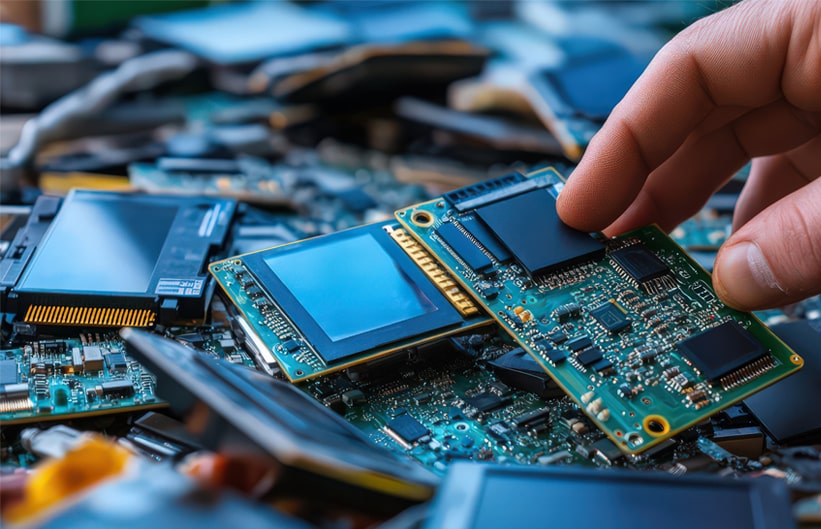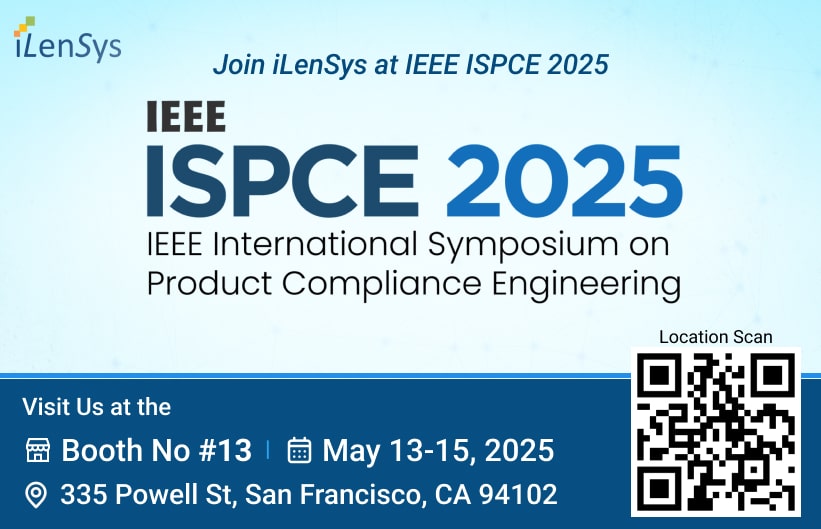Introduction
Product Change Notifications (PCNs) are formal notices sent to manufacturers to inform them of changes in a product, such as modifications in design, materials, or manufacturing processes. These notifications help deliver the intended product and facilitate system updates for affected components or applications.
Why are PCNs Issued?
In the electronics industry, PCNs are typically issued by Original Component Manufacturers (OCMs) or Original Equipment Manufacturers (OEMs) to notify customers of changes that may affect product performance, compatibility, or ease of use. Manufacturers or suppliers typically issue PCNs when product design, materials, manufacturing techniques, or regulations governing performance criteria change.
Industry Standards:
JEDEC: Offers standards for microelectronics, including J-STD-046 and J-STD-048, which guide OCMs and OEMs in notifying customers about product changes and discontinuations.
PCN Communication Practices
OCMs and OEMs use organized methods to communicate product modifications, using industry standards such as J-STD-046 and J-STD-048.
-
Formal PCNs: These include details about product revisions. For example, a semiconductor business may tell consumers about a new microchip package type, describing the change and the effective date. Customers can prepare for the change accordingly.
-
Standardized Notification Format: Following J-STD-046, the PCN includes sections like "Affected Part Numbers," "Change Description," and "Impact on Form, Fit, and Function." This helps establish effective communication between OCM/OEM and end users.
-
Timeliness of Communication: According to J-STD-048, OCMs normally offer 30 to 90 days' notice before implementing product changes. This allows customers to plan their risk assessment and mitigation action.
-
Documentation Updates:In addition to PCNs, manufacturers update datasheets and application notes against Datasheet Upgrade/Update.
For example, if there are changes in a connector's insulation or housing material due to disruptions in raw material sourcing, or if the connector's insulation or durability properties are affected, these updates will be reflected in the revised datasheet of the PCN.
-
Direct Customer Outreach: In addition to issuing formal PCNs, manufacturers may individually contact key clients to discuss the changes, address concerns, and reassure them of the transition process.
-
Support Resources: To assist end users in adjusting, manufacturers may provide supplemental content such as FAQs or transition guides. If a popular microcontroller is discontinued, a transition guide may recommend alternative substitutes.
-
Samples and Related Support: Manufacturers may provide samples of newly changed or altered products along with test results or evaluation reports to ensure the quality and performance of the changed product.
-
Feedback Mechanisms: Manufacturers can use feedback channels like webinars or questionnaires to address customer concerns about the compatibility or integration of new goods.
PCN Benefits for Stakeholders
PCNs are critical for stakeholders throughout the supply chain, ensuring seamless transitions, regulatory compliance, risk management, and innovation. In today's competitive and fast-paced business, OEMs rely heavily on PCNs. Below, we outline the numerous benefits of PCNs for important stakeholders:
For Design Engineers:
- Design Integrity: PCNs notify engineers of component modifications, ensuring that product designs stay functional and high-quality.
- Innovation: They provide information on modern technologies or materials for design enhancements.
For Supply Chain Teams:
- Inventory Management: PCNs notify teams about component availability or discontinuation, allowing for proactive inventory management.
- Risk Mitigation: Early notification of product modifications helps to prevent supply chain disruptions.
For Customers:
- Transparency: PCNs notify clients of changes that affect availability or performance, promoting trust.
- Informed Decisions: Customers can easily adapt, assuring business continuation.
For Cross-Functional Teams:
- Collaboration: PCNs improve cross-departmental collaboration by aligning teams around product updates.
- Strategic Planning: They assist teams to examine the impact of changes on business strategy and customer promises.
In essence, PCNs keep stakeholders informed, reduce risks, cost benefit and improve collaboration, resulting in increased operational efficiency and product innovation.
How Does PCNs Impact Supply Chain Management?
PCNs play a key role in supply chain management by giving timely notifications on changes to components, materials, or processes. These notifications allow manufacturers and suppliers to manage risks more efficiently, assure regulatory compliance, and maintain product quality, all of which are crucial for continuous production.
PCNs promote cross-supply chain collaboration, greater stakeholder communication, and improved inventory management. Timely updates enable businesses to make appropriate modifications, avoiding bottlenecks or delays. As a result, PCNs help keep the supply chain resilient and in sync with changing market demands.
For OEMs, PCNs are particularly valuable in today’s fast-paced marketplace for several reasons:
-
Continuity of Supply Chains: Changes must be communicated in a timely manner so that OEMs can swiftly alter their supply chains, avoiding manufacturing delays or shortages.
-
Regulatory Compliance: In highly regulated industries such as automotive and aerospace, PCNs assist OEMs in staying informed of changes that may influence compliance with safety, environmental, and quality requirements, avoiding costly penalties.
-
Risk Management: PCNs offer OEMs with information about the risks posed by changes in components or processes, allowing them to analyze potential consequences on final products and take proactive steps to mitigate such risks.
-
Cost Control: OEMs can anticipate cost swings by understanding changes in materials or suppliers, allowing them to make informed pricing and sourcing decisions that help them sustain profitability.
-
Product Lifecycle Management: PCNs are critical for managing product lifecycles by informing OEMs about discontinuations, updates, and new technologies. This understanding benefits in strategic planning, allowing businesses to manage transitions successfully.
-
Enhanced Customer Communication: Clear and timely communication with customers about product changes promotes trust, strengthens customer relationships, and increases brand loyalty.
-
Innovation Opportunities: PCNs allow OEMs and OCMs to innovate and remain competitive in a continually changing industry with respect to technology or materials by enabling effective communication between OEM/OCM and end users.
PCNs are vital for streamlining supply chain operations, minimizing disruptions, and maintaining competitiveness, ensuring that OEMs and suppliers can adapt swiftly to changing market dynamics.
Manage the PCN properly to ensure transparency and customer trust:
If a PCN is not correctly managed, it might have serious implications for the product development process. For example, if a PCN issued by OEM/OCM is overlooked by all interested parties for a variety of reasons. The failure to identify and act on the PCN can cause a delay in the New Product Development (NPD) process, necessitating a high-priority redesign of the product at higher cost. Such delays can disrupt production schedules, incur unexpected expenditures, and result in lost market opportunities. In the worst-case situation, failing to address PCNs in a timely manner can impair customer satisfaction, relationships, and the manufacturer's entire reputation.
When a PCN is managed properly, it has a positive impact on both the OEM/OCM and the End user: A well-managed PCN ensures that changes are communicated transparently and in a timely manner, which helps build trust between the OEM/OCM and end user. For example, end user feels more comfortable knowing that the OEM/OCM is proactive about sharing changes, especially if a product or series is going End-of-Life (EOL). End user can plan their own product updates and avoid sudden disruptions.
Proper PCN management also demonstrates that the OEM/OCM is committed to quality and reliability, which can attract more customers. This transparent approach contributes to stronger customer loyalty and a better market reputation for the OEM/OCM.
iLenSys Solution for Effective PCN Management
Effectively managing PCNs is crucial for ensuring smooth transitions, minimizing risks, and maintaining operational continuity. iLenSys offers a comprehensive solution for managing PCNs with its iLenSys Obsolescence Manager (iOM) tool, which streamlines the entire PCN process from notification to implementation.
By utilizing iLenSys’ iOM tool, manufacturers can:
-
Ensure Accurate Alerts: iOM helps validate PCN alerts and provides timely notifications, reducing the chances of missed or overlooked changes.
-
Track and Manage Alerts: The tool offers a meticulous Alert Tracker, allowing users to monitor and manage PCNs efficiently, ensuring that no critical changes go unnoticed.
-
Enhance Collaboration: iLenSys fosters collaboration between engineers, cross-functional teams, and database administrators, ensuring seamless communication and accurate data hygiene throughout the process.
-
Mitigate Risks: The systematic approach provided by iLenSys helps minimize potential risks associated with product changes, ensuring that stakeholders are well-informed and can take proactive actions in response to PCNs.
-
Maintain Up-to-Date Documentation: iOM ensures that all related documentation, such as datasheets and application notes, is updated in real time, allowing customers to make informed decisions based on the most current information.
By leveraging the iLenSys solution, manufacturers can effectively manage product changes, avoid costly mistakes, and uphold product lifecycle management standards, leading to operational excellence and smoother transitions. This ensures that businesses remain agile, compliant, and ready to adapt to evolving market needs.
Schedule a demo to explore the comprehensive features of iOM – an iLenSys’ Customizable Solution for managing obsolescence and optimizing your supply chain!
Talk to ours Obsolescence Management Experts.
By submitting this form, I agree to receive emails about iLenSys's products and services as per the Terms of Use. I can unsubscribe at any time via the 'unsubscribe' link in iLenSys emails or by emailing contact@ilensys.com. I also agree to the Privacy Policy.
Sign up for the latest Blogs, Case studies, Whitepapers, Webinars and Videos.
- Blogs
- Case Studies
- News and Updates
- Videos
- Webinars
- White Papers
-
- Product Environmental Compliance
- Obsolescence Management
- Regulatory & Product Safety
-
-
-
-
-
-
- New Product Development
- Mechanical Design
- FEA Validation
- Benchmarking and Value Engineering
- 3D Scanning and Reverse Engineering
- 3D Printing
-
- Embedded Systems
-
- Industrial Automation
-
- Quality Assurance and Regulatory Affairs
-
- Extended Reality
- 3D Animation & Video Production
- WebGL Development
- Graphics and UI/UX Reality
-
- Technical Documentation
-
- Early Engineering Talent (EET)
-
-
-
- Lab Equipment
- Medical Devices and Equipment
-
- Scientific Instruments
-
- Life Sciences
-
- Static and Mobile Equipment
-
- Material Handling Equipment
-




